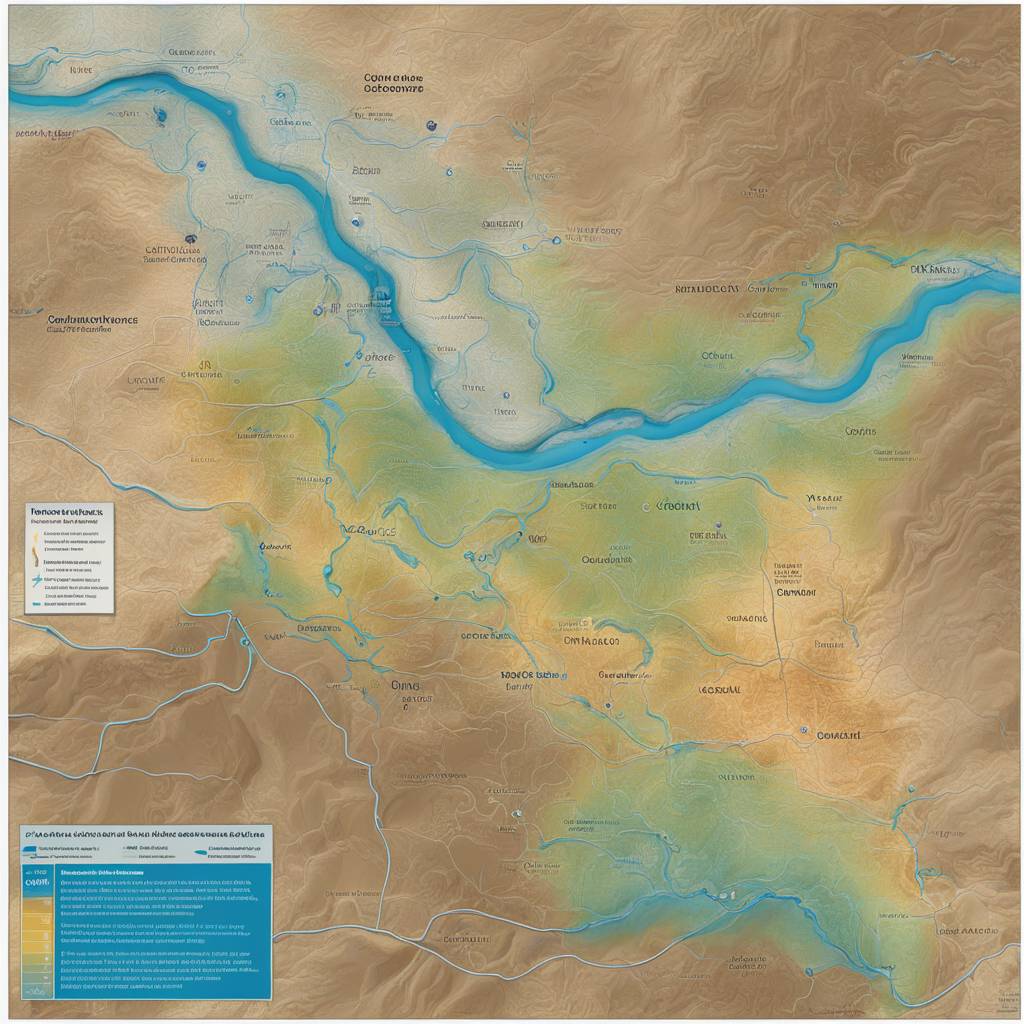A recent study published in Communications Earth & Environment has found that more than half of the Colorado River’s total annual water flow is used for agriculture. This research was conducted to determine the actual consumption of water from the vital river, which has been facing low water levels due to years of drought and overconsumption. Despite the significance of the Colorado River, a comprehensive water budget outlining the movement and losses of water has not been previously undertaken. Brian Richter, president of Sustainable Waters and senior freshwater fellow at the World Wildlife Fund, expressed concern over the current situation, noting the impact on farmers, energy production, recreational activities, and native fish populations.
The study conducted by Richter and his colleagues analyzed the Colorado River’s water budget from 2000 to 2019, considering all human uses of the water, including irrigation, drinking, and industrial purposes. The largest use of water was found to be for irrigation, accounting for 74 percent of direct human usage and 52 percent of total water consumption. Notably, around two thirds of the water used for irrigation was allocated to cattle feed crops. The researchers emphasized the importance of understanding where all the water from the Colorado River system is being used, especially in light of negotiations among states and Mexico regarding water sharing agreements.
The Colorado River’s water levels have reached historic lows in recent years due to a severe megadrought exacerbated by climate change. While record amounts of snowpack in 2023 provided some relief, concerns remain about the region’s water supply. The study warns that a significant reduction in water use is necessary to prevent further shortages, calling for a focus on maintaining water in the river to support its ecosystems. With several legal agreements on the Colorado River set to expire in 2026, the study’s data will be essential for policymakers and officials when discussing the allocation of water resources.
Richter stressed the need for immediate action to address the ongoing water crisis, proposing a 20 percent reduction in water use and emphasizing the importance of preserving the ecological health of the river system. As the climate continues to warm and flow rates decrease, further cuts to water consumption may be necessary to sustain the Colorado River’s ecosystem. The study’s findings provide valuable insights for policymakers and stakeholders involved in managing water resources in the region. Readers are encouraged to share any tips or questions related to the Colorado River by contacting Newsweek’s science department. Newsweek aims to challenge traditional perspectives and establish connections in pursuit of common ground when addressing complex environmental issues.


